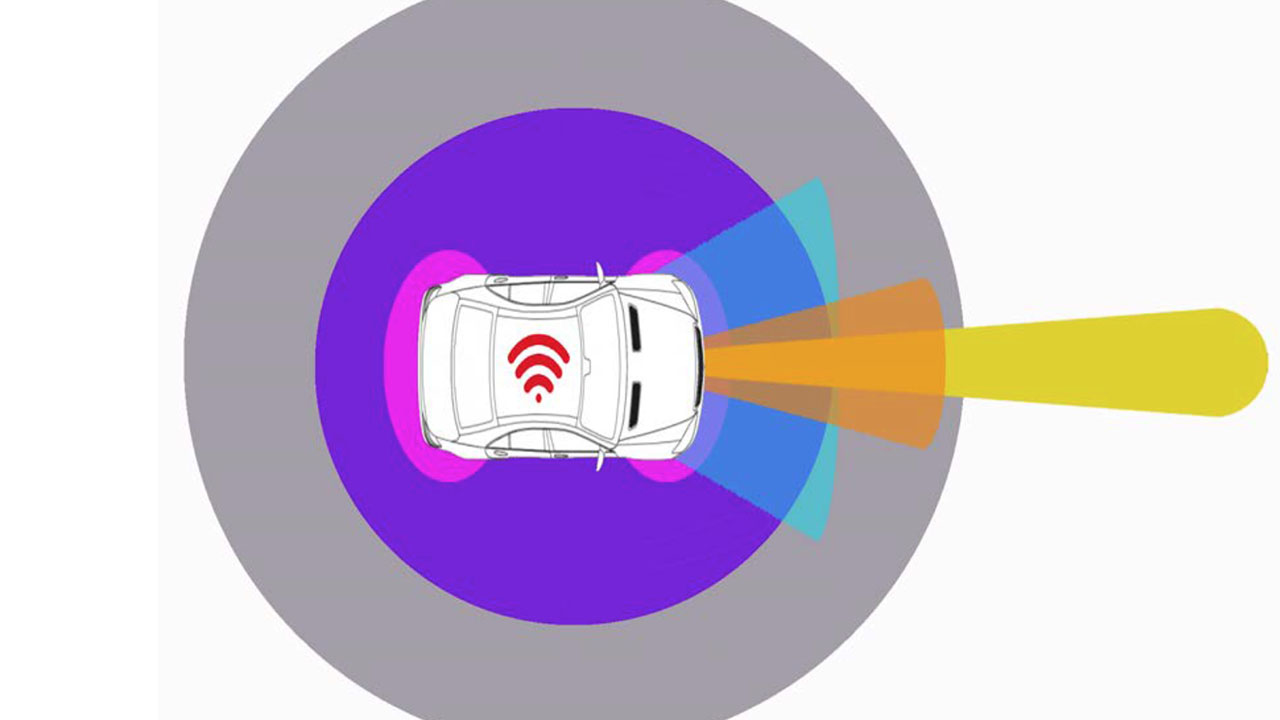- YouTube
- TikTok
Systems of Connected and Autonomous Vehicles uses latest technology to connect students around the globe

In a year that has re-imagined education at all levels, students in Oakland University’s Industrial and Systems Engineering (ISE) Department’s Systems of Connected and Autonomous Vehicles course (ISE 4900/ISE 5900/SYS 5900) are continuing to learn about CV and AV technologies while connected online from literally around the globe.
“My courses are normally in-person classes on campus and given the obstacles of COVID-19 this past year we have all had to get creative as to the methods and technologies we utilize to instruct various content,” said ISE Instructor Larry Osentoski. “Screen burn out is real and I try to tailor lectures accordingly and focus on interactive dialogue where possible allowing students to review material offline at a guided pace through the Ingenium Scientific course portal where students can track lectures and find other relevant course materials easily.”
Osentoski designed the course based on a 20-plus year career in the design and development of novel hardware and software solutions for the AV and CV market across commercial and military industry segments. As the chief technology officer for GC Associates, he leads a team of electrical, mechanical and software engineers in the development of various smart electronic control units for various AV and CV markets.
In the course, these disciplines are represented, in addition to other engineering majors.
Student projects focus on use of Google’s AutoML product for machine learning using image recognition as the data source. Machine learning is at the heart of AV systems and Google offers new users $300 free credits to create models and test them. The course ties strongly into the hyper technology boom that is occurring right now and offers students a chance to learn these systems in an application setting within a specific field using state of the art ML tools from an industry leader in cloud based solutions and tools.
“The course is geared toward having our students understand not only the technology trade-offs, but also the business drivers for each industry in order to add real value to potential employers in various markets,” Osentoski said. “In our second year of the course we attracted more students working in the industry and they were able to learn more about the history of this industry and how it impacts the technology they work with today.”
The course enables those with an interest in AV and CV to learn more about everything from the early history of the industry to vehicle electrical architectures, cyber security, sensors employed, cloud computing, machine learning and even regulatory and legal aspects of this emerging industry. Additionally, the course explores use cases demonstrated across state, federal, commercial and military segments.
“Our goal with the course is to provide a focus on the systems of systems level, rather than on the individual technologies used in connected and autonomous vehicles,” said Robert Van Til, Pawley Professor of Lean Studies and chair of the ISE Department.
Osentoski has indicated that he has extended employment offers to students as a result of their performance in the series of courses he teaches, showing first-hand their value in the technology industry.
“It is no coincidence that during this pandemic the market capitalizations of firms like Tesla, and even traditional Auto OEMs taking bigger stakes in electric based AV and CV vehicles, have moonshot to record valuations,” Osentoski said. “This growth is a tail of the home delivery service models that are popping up that will someday be completely autonomous. This pandemic has kick started a hyper technology boom that would have taken another five to seven years to catch on otherwise.”
For more information, visit www.oakland.edu/secs/departments/ise.


 May 6, 2021
May 6, 2021